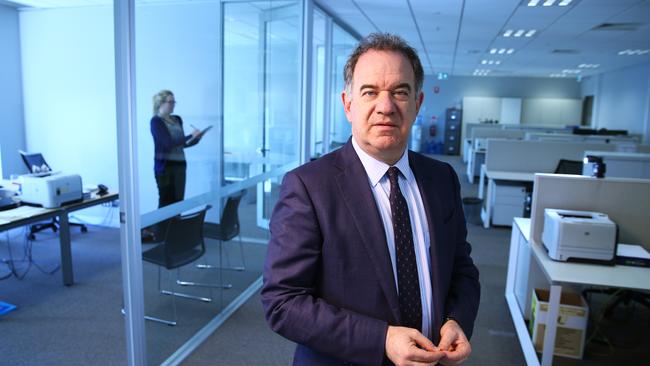Highs and lows for biotech Mesoblast over past year, amid battle with US regulator FDA
It has been another rollercoaster ride for shareholders in biotech Mesoblast, in terms of its share price and medical approvals.

Stem cell-focused biotech Mesoblast, which has given investors a rollercoaster ride over the past year, has experienced both “meaningful progress” as well as costly delays for its flagship medical applications in 2021.
“2021 has been a rollercoaster year for the world, and a challenging year of both meaningful progress as well as some setbacks for Mesoblast,” chairman Joseph Swedish told shareholders at its annual general meeting on Monday.
“We have gone from the elation of seeing a United States Food and Drug Administration (FDA)-compiled panel of experts vote in favour of our lead product, a potentially company-transforming partnership with global pharma, and some very impressive clinical results, to delays in our foundational submissions to the US regulatory authority,” he said.
But Mr Swedish said despite these challenges its core therapies – remestemcel-L and rexlemestrocel-L – had continued to deliver results that demonstrated their life saving potential in addressing four complex medical disorders: graft versus host disease, acute respiratory distress syndrome, advanced heart failure, and chronic lower back pain.
Mesoblast, a $1.11bn biotech, is one of the most jittery stocks on the market with its shares reacting quickly and savagely to good or bad news on the regulatory front.
Its share price almost tripled from $1 to $3 in the year before Covid-19 hit, then promptly lost 50 per cent of its value, then rallied to above $5 in late 2020 before a series of regulatory knocks saw its shares fall back to just above $1.70.
Only a fortnight ago, Mesoblast shares jumped 11 per cent when one of its therapies was mentioned in a major US conference.
But the biggest setback has been the failure of the FDA recently to approve its remestemcel-L therapy in young children suffering from steroid-refractory acute graft versus host disease (GvHD).
“Following a presentation of study results to the FDA’s advisory panel last year, and the panel voting overwhelmingly in favour that the data supported the efficacy of our GvHD therapy, we were very disappointed that an approval did not materialise,” Mr Swedish said.
“However, we have regrouped and, after addressing the outstanding items that the FDA requested, we are confident that our collegial collaboration could lead to a resubmission of our current Biologic License Application.”
Mr Swedish said the company’s additional investments with respect to remestemcel-L would also support commencement of a second Phase 3 trial for acute respiratory distress syndrome (ARDS) associated with Covid-19 – a deadly combination of inflammatory reactions that has claimed many lives during this pandemic.
“Promising results from our first ARDS trial, together with a recent constructive meeting with the FDA, pave the way for a highly anticipated follow-up study and a pathway to potential emergency use authorisation for patients with the highest risk of mortality.
“Our second cell therapy, rexlemestrocel-L, has also received a recent boost with its presentation at the American Heart Association’s 2021 Scientific Sessions, where the latest results were outlined from a five-year Phase 3 trial involving 565 patients – the largest-ever trial of a cell therapy for heart disease.
“Mesoblast is excited by these results, which are due to be published by a major medical journal and will inform the progress of our other major submission before the FDA.”
CEO and founder Silviu Itescu said the biotech was in a strong financial position with cash on hand at September 30 of US$116m and in the most recent quarter, net operating cash usage was US$19.6m, a reduction of US$8.6m on the comparative quarter.
Its shares closed down 1.8 per cent at $1.68.




To join the conversation, please log in. Don't have an account? Register
Join the conversation, you are commenting as Logout